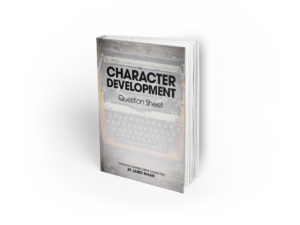In screenwriting the term “vomit draft” will naturally produce the need for a rewrite. Don’t be too bummed out, pretty much every script needs a rewrite and basically all of them get one. This happens at either the writer level or the production/studio level. Needless to say, you probably will need to do a rewrite.
Rewriting my work is always a constant struggle because I am always ready to move on to the “sexy” parts of filmmaking, usually referred to as production. Remember that production accounts for around 10% +/- of the actual time and effort it takes to make a movie, so let’s put the time in so that the production goes smoothly and do our rewrite.
Here are 3 tips on getting through your rewrite and polishing your “vomit draft” faster.
Tip One: Editing vs. Rewriting
You should really have an understanding of what editing your script is compared to rewriting your script. Editing is oftentimes referred to as wordsmithing your work. You have to make sure you have gone through and fixed your grammar and spelling errors, used the right words, etc., but this is not necessarily rewriting.
A rewrite leans itself more towards completely reworking scenes and characters. Maybe a character is not working that well in the story but you know there needs to be a character in it. This is where you rewrite the character, change their gender, change their species, move the scene to a new location, change the goals or opposition of the scene, change the genre. The rewrite can be small or massive but save the wordsmithing or editing for later.
Editing and Rewriting are two separate things.
Don't edit when you need to do a rewrite.Jared Isham Tweet
Tip Two: Identify Problem Scenes As You Write
- The more you write the easier it will be to identify if you need to rewrite a scene or not. There are many times where as I am writing I realize that I may need to rewrite a scene. When this happens I make a note that I will need to return to this scene and rewrite it and then I give the reasons why I think I will need to do so. This helps me to not forget.
A few things that raise a red flag for me are:
- My character Goals are strong enough.
- The goals I do give my characters are not “in character” to how they would respond.
- My scene has no goals and is more of an exposition scene that gets really boring
- If I get bored writing it…something is probably wrong.
If you still have trouble identifying scenes that need a rewrite in your script I’d recommend finding a group to share it with. I have my go-to people that I send my scripts for feedback. This group of “readers” can help you to identify scenes that aren’t working or don’t make sense. If they are confused then there is a good chance you might need to rewrite it.
Tip Three: Post Writing Research
Sometimes while you are reading your vomit draft you might have some questions regarding the validity of what you wrote. I make notes of these question mark portions of my screenplay and then do a little extra research to find out if it is plausible or not.
In a script I was working on I had some questions on how the public school system worked and what the staffing looked like. After I was able to educate myself on that story element I was able to more accurately fix my screenplay so that it made sense for the world I was writing in.
Tip Four: Make Your Boring Characters Interesting
When you are working for hire or have scripts that people are waiting on you don’t always have the time to do a full-blown rewrite of your story. Many times you might be limited to focusing on only one problem area of your script. This might be your chance to take your boring characters and beef them up a bit.
In my script, I had a number of characters that I liked but they all a similar voice. When someone would read the script they might get lost in knowing who was saying what since lines could be swapped easily. This isn’t all that exciting for actors easily, in essence, you have created a script full of “throwaway” lines.
In one of my scenes, I realized that one of my characters should not have even been in the scene. Upon realizing this, I rewrote the scene with a completely different character so that it would work better for the story.
Understanding who your characters are is important. What their goals are, what their positive character traits are, what their negative character traits are, and then giving them ticks and quirks, and goals that will give a unique voice to these characters.
